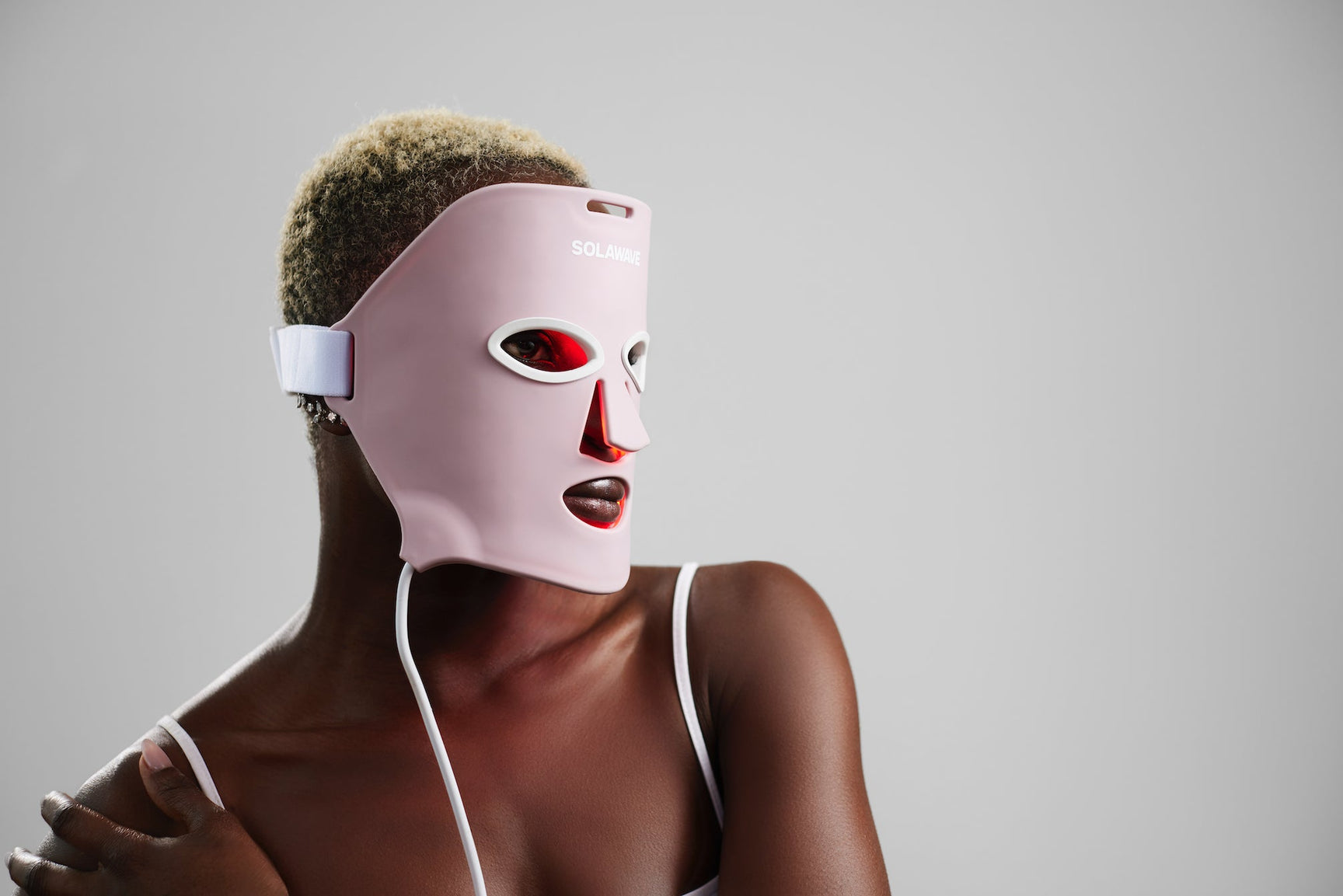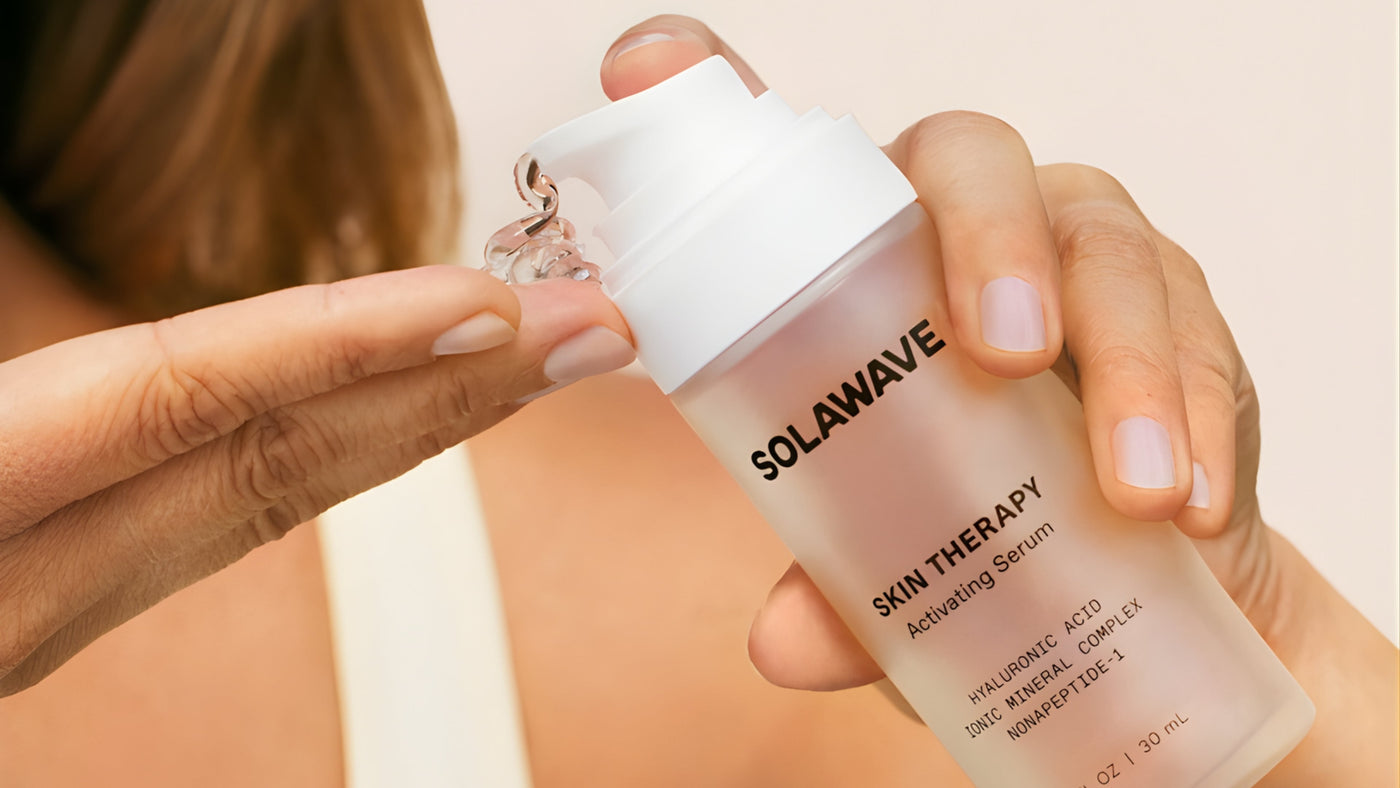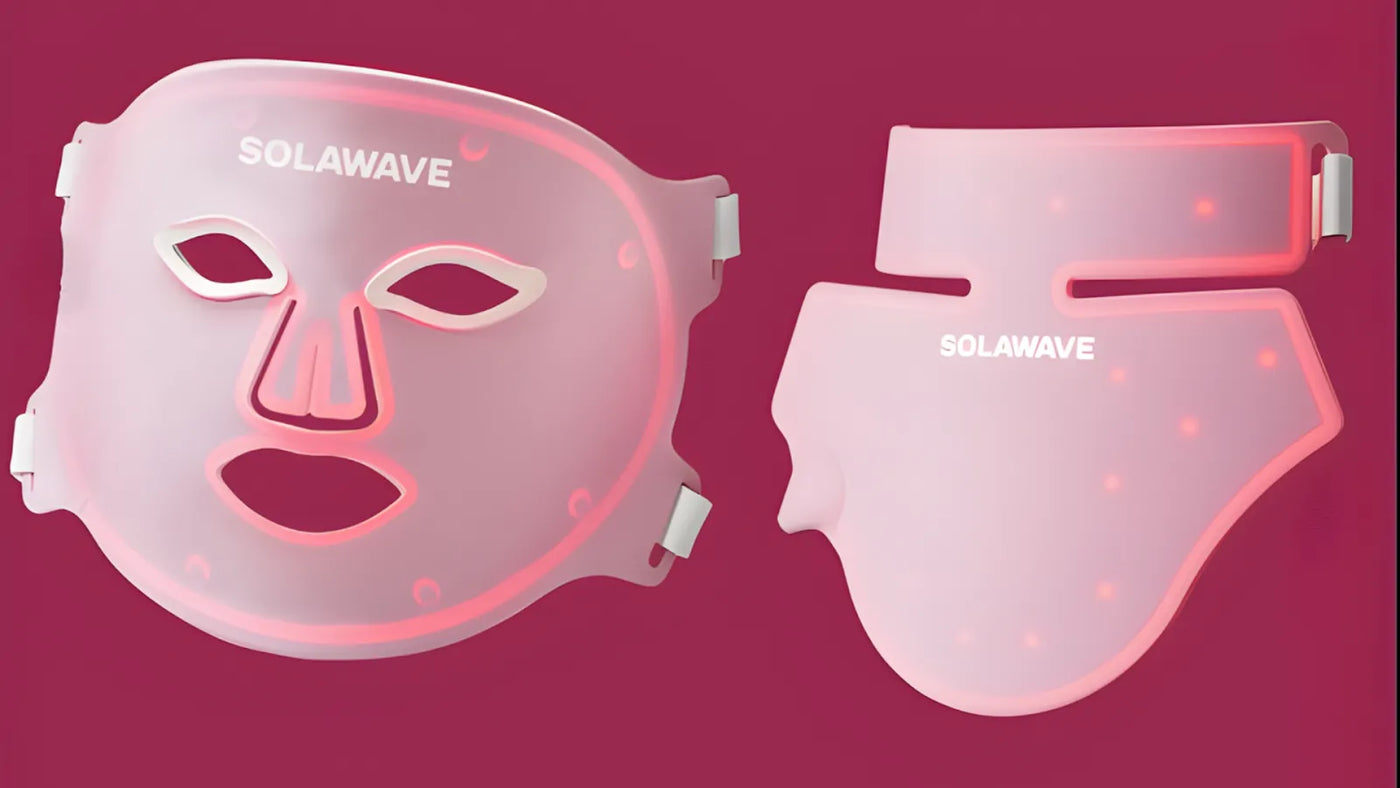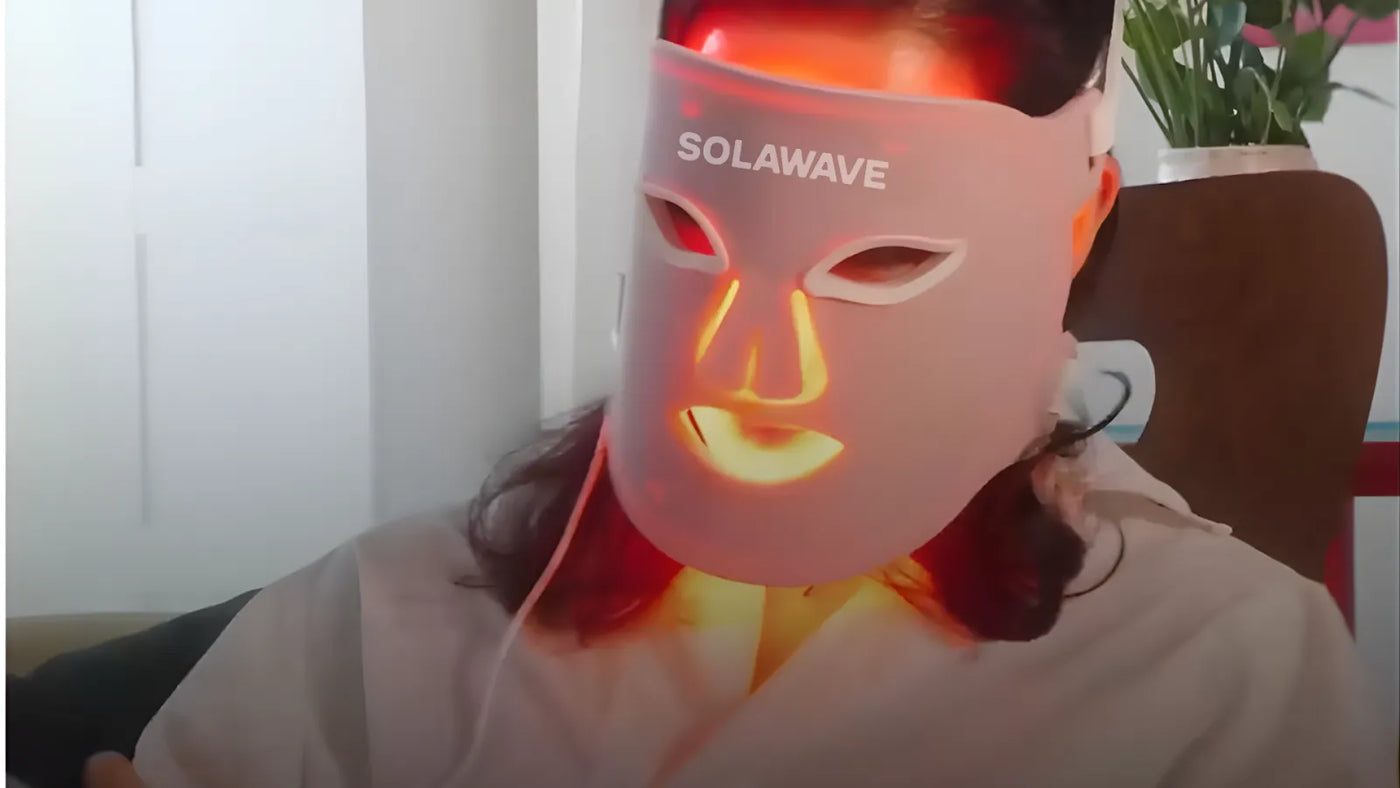

Red Light Therapy For Anxiety: Science or Fiction?
Anxiety is a natural human response to stress, but for many people, it can become overwhelming and interfere with daily life. Whether it’s persistent worry, restlessness, or physical symptoms like a racing heart, anxiety affects millions of individuals and is one of the most common mental health concerns worldwide.
This article is designed to give you clear, factual information about anxiety, including what it is, how it manifests, and proven strategies for managing its symptoms. You’ll also find an honest look at the science behind red light therapy (RLT) and its relationship to anxiety, so you can make informed decisions about your health and wellness. While we’ll discuss what research exists, you should always rely on evidence-based methods and consult with healthcare professionals when addressing anxiety or any mental health concern.
What Does It Mean To Have Anxiety?
Anxiety is more than just feeling nervous before a big event or worrying about everyday problems. It’s a complex emotional and physical response that can affect your thoughts, feelings, and behaviors. At its core, anxiety is your body’s natural reaction to perceived danger or stress — a built-in alarm system designed to keep you safe. However, when this response becomes excessive, persistent, or is triggered by situations that aren’t truly dangerous, it can interfere with your ability to function and enjoy life.
Anxiety is characterized by feelings of unease, worry, or fear that can range from mild to severe. While everyone experiences feelings of anxiety from time to time, people with anxiety disorders often feel anxious most days, and these feelings can be difficult to control.
Living with anxiety can affect nearly every aspect of your life. It can make it hard to focus at work or school, strain relationships, and limit your ability to participate in activities you once enjoyed. Chronic anxiety can also take a toll on your physical health, contributing to headaches, digestive problems, and a weakened immune system.
Emotionally, anxiety can lead to feelings of hopelessness, frustration, or embarrassment. You might avoid situations that trigger your anxiety, which can lead to isolation and a reduced quality of life. Over time, untreated anxiety can increase your risk for other mental health issues, such as depression.
Common symptoms of anxiety include:
-
Persistent worrying or obsessive thoughts
-
Feeling restless, tense, or “on edge”
-
Difficulty concentrating or finding your mind going blank
-
Irritability
-
Muscle tension or aches
-
Sleep disturbances, such as trouble falling or staying asleep
-
Rapid heartbeat, sweating, trembling, or shortness of breath
-
Stomach upset or digestive issues
These symptoms can vary in intensity and may come and go, but for those with an anxiety disorder, they often persist and can significantly disrupt daily life.
Types of Anxiety Disorders
There are several types of anxiety disorders, each with its own unique features:
-
Generalized Anxiety Disorder (GAD): Characterized by excessive, uncontrollable worry about a variety of topics, such as work, health, or everyday situations. People with GAD often anticipate disaster and may struggle to relax.
-
Panic Disorder: Involves sudden, intense episodes of fear known as panic attacks. These attacks can cause physical symptoms like chest pain, heart palpitations, dizziness, and a sense of impending doom.
-
Social Anxiety Disorder: Marked by intense fear of social situations or being judged by others. This can lead to avoidance of social interactions, public speaking, or even everyday activities like eating in public.
-
Specific Phobias: Involve an intense, irrational fear of a specific object or situation, such as heights, flying, or certain animals.
-
Separation Anxiety Disorder: Most common in children, but can affect adults as well. It involves excessive fear or anxiety about being separated from attachment figures.
-
Other Related Disorders: These include conditions like agoraphobia (fear of being in situations where escape might be difficult) and selective mutism (difficulty speaking in certain social situations).
Evidence-Based Approaches to Managing Anxiety
Effectively managing anxiety often requires a combination of approaches tailored to your unique needs and circumstances. Decades of research have identified several evidence-based strategies that can help reduce anxiety symptoms and improve your overall quality of life. While everyone’s experience with anxiety is different, these methods are widely recognized by mental health professionals for their safety and effectiveness.
Cognitive Behavioral Therapy (CBT)
Cognitive Behavioral Therapy, or CBT, is one of the most well-established treatments for anxiety disorders. CBT is a structured, goal-oriented form of talk therapy that helps you identify and challenge unhelpful thought patterns and behaviors that fuel anxiety. Through CBT, you learn practical skills to reframe negative thinking, confront fears in a controlled way, and develop healthier coping mechanisms.
CBT is typically delivered by a licensed therapist in weekly sessions, either individually or in a group setting. Numerous studies have shown that CBT can significantly reduce anxiety symptoms, and its benefits often last long after therapy ends. It’s considered a first-line treatment for many types of anxiety disorders.
Medication
For some people, medication can be an important part of managing anxiety, especially when symptoms are severe or interfere with daily functioning. Many anxiety medications work by influencing neurotransmitters — chemical messengers in your brain that play a crucial role in regulating mood, emotions, and stress responses.
What Are Neurotransmitters?
Neurotransmitters are chemicals that transmit signals between nerve cells (neurons) in your brain and throughout your nervous system. The main neurotransmitters involved in anxiety include:
|
Neurotransmitter |
Role in the Body |
Connection to Anxiety |
|
Serotonin |
Regulates mood, sleep, and appetite; promotes feelings of well-being |
Low levels are linked to increased anxiety and depression |
|
Norepinephrine |
Controls alertness, arousal, and the body’s stress response |
Imbalances can cause heightened anxiety and difficulty managing stress |
|
Gamma-aminobutyric acid (GABA) |
Acts as an inhibitory neurotransmitter, calming nervous system activity |
Low GABA levels can lead to increased anxiety and feeling on edge |
|
Dopamine |
Influences motivation, pleasure, and emotional responses |
Imbalances can contribute to anxiety symptoms |
Rebalancing these neurotransmitters is important because it helps restore a sense of calm, improves mood, and reduces the intensity of anxiety symptoms.
The most commonly prescribed medications for anxiety include:
-
Selective Serotonin Reuptake Inhibitors (SSRIs): These antidepressants, such as sertraline or fluoxetine, increase serotonin levels in the brain. By preventing the reabsorption (reuptake) of serotonin, SSRIs help maintain higher levels of this neurotransmitter, which can improve mood and reduce anxiety.
-
Serotonin-Norepinephrine Reuptake Inhibitors (SNRIs): Medications like venlafaxine increase both serotonin and norepinephrine levels. By targeting these two neurotransmitters, SNRIs can help regulate mood and enhance your ability to cope with stress.
-
Benzodiazepines: Fast-acting anti-anxiety medications such as diazepam or lorazepam work by enhancing the effect of GABA. This increased GABA activity calms the nervous system, providing quick relief from acute anxiety. However, these medications are typically prescribed for short-term use due to the risk of dependence.
-
Beta-blockers and Buspirone: Beta-blockers help manage the physical symptoms of anxiety, such as rapid heartbeat, by blocking the effects of adrenaline. Buspirone works differently by affecting serotonin and dopamine receptors, helping to rebalance these neurotransmitters without the risk of dependence.
Medication is most effective when combined with therapy and lifestyle changes. It’s important to work closely with a healthcare provider to find the right medication and dosage, and to monitor for side effects.
Lifestyle Changes
Simple changes in your daily habits can have a powerful impact on anxiety levels. Key lifestyle strategies include:
-
Regular Exercise: Physical activity releases endorphins and helps regulate stress hormones, making it a natural anxiety reliever. Even moderate exercise, like walking or yoga, can make a difference.
-
Healthy Sleep Habits: Poor sleep can worsen anxiety, so establishing a consistent sleep schedule and creating a calming bedtime routine is crucial.
-
Balanced Nutrition: Eating a well-rounded diet with plenty of fruits, vegetables, whole grains, and lean proteins supports brain health and emotional stability. Limiting caffeine and sugar can also help reduce anxiety symptoms.
-
Limiting Alcohol and Substance Use: These can worsen anxiety and interfere with treatment.
Making these changes will likely not eliminate anxiety entirely, but they can help reduce symptoms and improve your resilience to stress.
Mindfulness and Relaxation Techniques
Mindfulness practices teach you to focus on the present moment without judgment, which can help break the cycle of anxious thoughts. Common techniques include:
-
Meditation: Guided or self-directed meditation can calm the mind and reduce stress.
-
Deep Breathing Exercises: Slow, controlled breathing helps activate the body’s relaxation response.
-
Progressive Muscle Relaxation: Tensing and then relaxing different muscle groups can ease physical tension associated with anxiety.
-
Yoga and Tai Chi: These mind-body practices combine movement, breath, and mindfulness.
Research shows that regular mindfulness practice can lower anxiety levels, improve mood, and enhance overall well-being.
Support Groups and Counseling
Connecting with others who understand what you’re going through can be incredibly helpful. Support groups, whether in person or online, offer a safe space to share experiences, learn coping strategies, and feel less alone. Group therapy, led by a mental health professional, can also provide valuable support and education.
Individual counseling with a licensed therapist can help you explore the root causes of your anxiety, develop personalized coping strategies, and set achievable goals for recovery.
Red Light Therapy: What Is It?
Red light therapy (RLT) is a non-invasive wellness technique that uses low-level wavelengths of red or near-infrared light to stimulate cells in your body. During a typical session, you expose your skin to a specialized device that emits this light, which is believed to penetrate the skin and support cellular function.
RLT is most commonly used for purposes such as improving skin health, reducing inflammation, and aiding muscle recovery after exercise. Some people also use it to help with joint pain or to enhance overall wellness.
It’s important to understand that, while red light therapy has shown promise for certain physical concerns, it is not an established treatment for anxiety or any mental health condition. Current research does not support RLT as a cure or therapy for anxiety, and you should instead rely on proven, evidence-based methods for managing mental health.
Research on Red Light Therapy for Anxiety
Research on red light therapy for anxiety is still in its early stages, and there are very few scientific studies or clinical trials that directly examine its effects on anxiety symptoms. Most available research on RLT focuses on physical health benefits, such as skin rejuvenation and muscle recovery, rather than mental health outcomes.
At this time, there is no strong scientific evidence to support red light therapy as a treatment for anxiety. If you are seeking help for anxiety, it’s essential to rely on proven, evidence-based approaches and consult with a qualified healthcare professional.
The Bottom Line: What You Should Know
Managing anxiety is most effective when you rely on evidence-based strategies such as therapy, medication, lifestyle changes, and mindfulness techniques. These approaches have been thoroughly researched and are recommended by mental health professionals for their safety and effectiveness.
While red light therapy is gaining popularity, there is currently no strong scientific evidence supporting its use as treatment for anxiety or any mental health condition.
If you’re struggling with anxiety, consult a healthcare professional who can guide you toward proven solutions. Always approach new wellness trends with a critical eye, and prioritize methods that are backed by solid research and clinical experience. Your well-being deserves nothing less.
Sources:





















